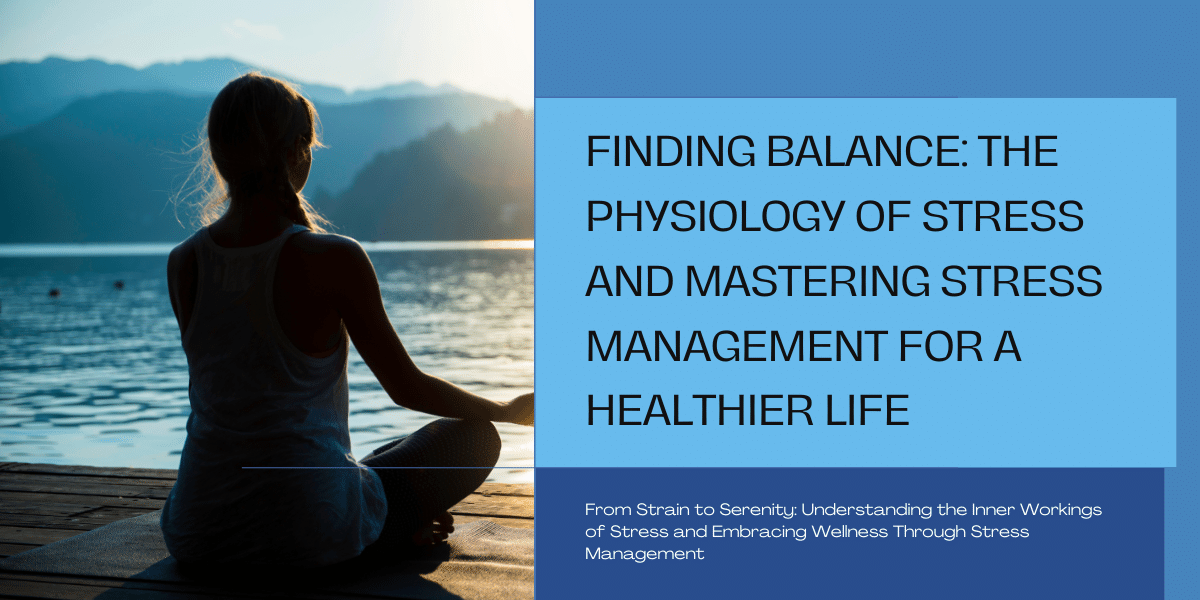Finding Balance: the Physiology of Stress and Mastering Stress Management for a Healthier Life
From Strain to Serenity: Understanding the Inner Workings of Stress and Embracing Wellness Through Stress Management
From Stress to Serenity: Understanding the Physiological Impact of Stress and Mastering Stress Management for Optimal Health
Stress has turned into an inevitable aspect of life in the fast-paced world of today. While a certain level of stress is natural, chronic stress can wreak havoc on our physical and mental well-being. This blog post delves into the physiological effects of stress on the body, exploring how stress impacts various systems. Moreover, it provides a comprehensive guide to effective stress management techniques, empowering you to enhance both your mental and physical health.

The Physiology of Stress:
When stress triggers the body’s “fight or flight” response, it releases hormones like cortisol and adrenaline. While these hormones are essential for immediate survival, prolonged exposure to high levels can lead to adverse effects. Chronic stress can impact the cardiovascular system, weaken the immune system, disturb sleep patterns, and even affect digestion, contributing to various health issues.
Mind-Body Connection:
Understanding the mind-body connection is key to managing stress. Stress management techniques such as meditation, deep breathing exercises, yoga, and mindfulness practices can regulate the stress response. These practices not only calm the mind but also trigger the body’s relaxation response, reducing the harmful physiological effects of stress.
Benefits of Stress Management:
- Improved Heart Health: Managing stress reduces the risk of heart disease by lowering blood pressure and preventing the hardening of arteries.
- Enhanced Immune Function: A well-managed stress response strengthens the immune system, making the body more resilient against infections and diseases.
- Better Mental Health: Stress management techniques alleviate symptoms of anxiety and depression, promoting mental well-being and clarity of mind.
- Healthy Digestion: By reducing stress, these techniques improve digestion, ensuring the body can absorb nutrients efficiently.
Incorporating Stress Management Into Daily Life:
- Daily Mindfulness Practice: Dedicate a few minutes each day to mindfulness meditation to cultivate a calm and focused mind.
- Physical Activity: Regular exercise releases endorphins, reducing stress and promoting a sense of well-being.
- Healthy Lifestyle Choices: Adequate sleep, balanced nutrition, and limiting caffeine and alcohol intake play vital roles in stress management.
- Social Support: Engage with friends, family, or support groups to share your feelings and concerns, alleviating emotional burdens.
Conclusion: By recognizing the physiological effects of stress and adopting effective stress management techniques, you can nurture your mental and physical health. Embrace mindfulness, exercise, and healthy lifestyle choices, and witness the transformation from stress to serenity. Your journey to optimal well-being begins with understanding the power of stress management in leading a fulfilling and balanced life.




